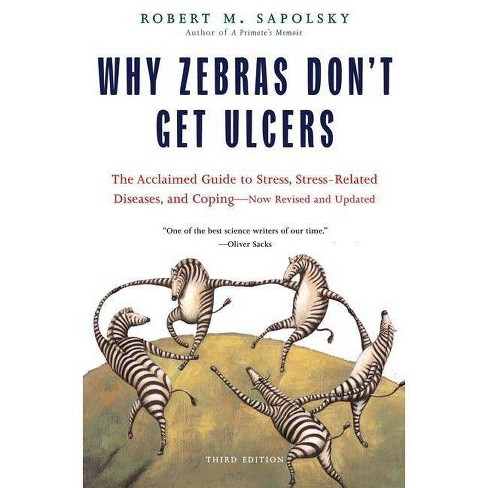Stress is unavoidable. However, we handle stress is often within our control. There are good ways and bad ways to handle stress, and meditation is considered a healthy stress reduction strategy.
Continue reading “New Meditation and Genetics Research: The Shamatha Project”Category: Research
Meditation and Your Brain
A recent and important research study out of neuro-imaging researcher Sara Lazar’s lab (my old lab) at Massachusetts General Hospital was published in late January. The study found changes in the structure of the brains in people who completed an eight-week class in mindfulness meditation. This result is another piece of evidence that that the adult brain can experience far more physical changes than previously thought.

This study suggests that we can change our brains in just eight weeks! The authors of the study tell us that in their study, people who completed the eight-week mindfulness meditation program experienced changes in parts of their brains “responsible for learning and memory processes, emotion regulation, self-referential processing, and perspective taking.”
Continue reading “Meditation and Your Brain”Meditation and mindfulness research
For several reasons, mindfulness and meditation have been the subject of more and more well executed scientific research over the past twenty years. Much of this research has investigated the effect of meditation on mood and on the brain’s ability to regulate emotion.

Other research has investigated the capacity for meditation to help people suffering from anxiety disorders such as panic disorder and generalized anxiety disorder. It may be that the study of meditation’s ability to make us happy has gotten more publicity than the study of meditation’s capacity to reduce anxiety. However for people with diagnosable anxiety disorders, the potential to be gained from meditation is perhaps greater than it is for everyone else. Meditation can “quiet the mind,” and pave the way for certain types of anxiety (e.g., worry, panic attacks) to improve.
Book review: Why Zebras Don’t Get Ulcers
We each have different ways of managing the stress in our lives. Make no mistake, we all have some stress to deal with. Most of us have been through times when the stress in our lives felt overwhelming. For many of us, these times are few and far between. But for some people, stress can feel overwhelming on a chronic basis.
Continue reading “Book review: Why Zebras Don’t Get Ulcers”Meditation Brain Research
A recent meditation study out of California has recently garnered significant publicity.

It should be no surprise to anyone that the brain is the most complex organs in the body, and the most difficult to understand. Despite the frequent headlines about scientific advances, researchers have only a relatively primitive understanding of how the brain works.
Some areas are well understood as very important to, say, breathing or balance. However, much “higher-order” cognitive functioning is very difficult to pin down in the brain. For example, long term memory does not appear to be localized to one part of the brain; rather, your brain uses many different locations in the supremely complex task of storing long-term memory.
It is also important to note that many aspects of brain functioning are not localized to one patch of gray matter. Research has revealed that many aspects of our cognitive functioning make use of “circuits” in the brain comprised of nerve cells reaching from one end of the brain to the other.
In the study described above, researchers at UCLA did two studies on emotional processing in the brain. They used functional magnetic resonance imaging (fMRI) to study which parts of the brain were more active during separate tasks. This method of studying the brain is one of the most complex and accurate methods currently available. One of their reported results was that people who were more “mindful” displayed different brain functioning than those who were not. Here the word “mindful” refers to those traits that are associated with long-term experience with meditation.
One result the researchers found was that people who were more mindful displayed more of the brain patterns found in people who are good at “putting feelings into words.” This result may be partly explained by the fact that a tendency to label one’s emotions is often included in descriptions of mindfulness. However, it is possible that this study illuminates an important difference in brain functioning between people who are mindful and those who are not.
We should beware the headlines that often accompany articles like this one. The above URL links to an article whose headline reads, “Brain Scans Reveal Why Meditation Works.” On one hand, this seems like a gross exaggeration. The uninformed reader may glance at this and conclude, “Hey, how about that, those scientists cracked another mystery. Case closed.” However there is much about meditation and much about the brain that is poorly understood by scientists. The recent trend to explain the subjective and objective effects of meditation in terms of neurobiological functioning is a welcome one, to this writer, but we have a long way to go before the mysteries of “why meditation works” can be considered “cracked.”
Meditation Brain Research Study
A study conducted by my former lab at Massachusetts General Hospital recently examined the effects of regular meditation practice on the structure of the brain.
The study showed that, among other results, the thickness of particular areas of the cerebral cortex was different for regular meditators than it was for an age-matched comparison group. Additionally, the study showed that this effect was more pronounced in the older meditators studied than it was in the young ones. This may be interpreted as suggesting meditation slows natural aging processes in certain parts of the brain. While more research is certainly needed to corroborate these findings, they are very intriguing. This study was led by Dr. Sara Lazar, and investigated a type of meditation called Insight meditation, a form of Buddhist spiritual practice that is practiced in Myanmar and Thailand. Mindfulness meditation is derived from this tradition.

